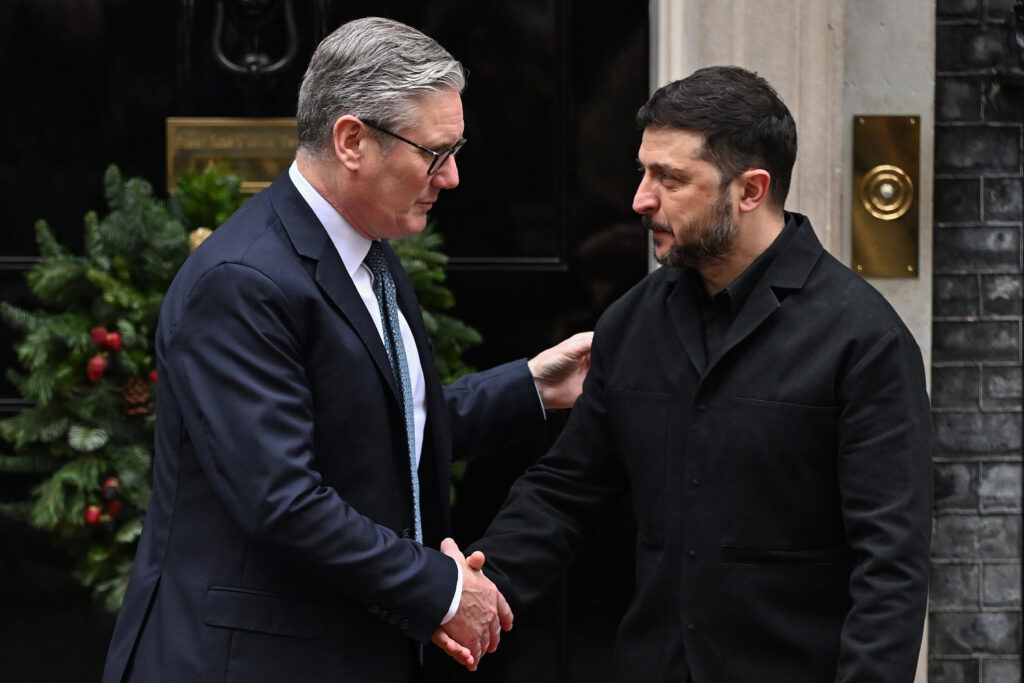Indonesia suffers food, medical shortages as Asia flood tolls rise
Regions hit by floods that killed hundreds in Indonesia were suffering from food and medical shortages, authorities said, as elephants pitched in on Monday to help clear up debris.Tropical storms and monsoon rains have pummelled Southeast and South Asia this month, triggering landslides and flash floods from the rainforests of Indonesia’s western Sumatra island to highland plantations in Sri Lanka.”Everything is lacking, especially medical personnel. We are short on doctors,” Muzakir Manaf, the governor of Indonesia’s Aceh province, told reporters late Sunday.Indonesia’s national disaster mitigation agency (BNPB) said 961 people in Aceh, North Sumatra and West Sumatra had been killed, while 293 were missing. More than a million people were displaced, the agency said.Sri Lanka’s military meanwhile deployed thousands of extra troops to aid recovery efforts after a devastating cyclone caused a wave of destruction and killed 635 people.In Pidie Jaya, a district in Indonesia’s Aceh badly affected by the floods, four elephants from a nearby training centre picked up large pieces of rubble with their trunks and helped shift stuck vehicles.”We brought four elephants to clear the debris from the houses of the communities that were swept away by the flood,” Hadi Sofyan, the head of a local conservation agency, told AFP.”Our target is to clean the debris near the residents’ houses so they can access their homes,” he said, adding the elephants would be used for the rest of the week.The downpours and subsequent landslides throughout western Indonesia have injured at least 5,000 people and devastated infrastructure, including schools and hospitals.In the city of Banda Aceh, long queues formed for drinking water and fuel, and prices of basic commodities such as eggs were skyrocketing, an AFP correspondent said.Costs to rebuild after the disaster could run up to 51.82 trillion rupiah ($3.1 billion), the BNPB said late Sunday.- Extra troops -In Sri Lanka, more than two million people — nearly 10 percent of the population — have been affected by Cyclone Ditwah, the worst on the island this century.Sri Lanka is expecting further heavy monsoon rains this week, topping five centimetres in many places, the Disaster Management Centre (DMC) said. It issued warnings of further landslides.Army chief Lasantha Rodrigo said 38,500 security personnel had been deployed to boost recovery and clean-up operations in flood-affected and landslide-hit areas, nearly doubling the initial deployment.”Since the disaster, security forces have been able to rescue 31,116 people who were in distress,” Rodrigo said in a statement.President Anura Kumara Dissanayake unveiled a recovery package, offering 10 million rupees ($33,000) for victims to buy land in safer areas and rebuild.The government will also offer livelihood support and cash assistance to replace kitchen utensils and bedding and to buy food.It is not clear how much the relief package will cost the government, which is still emerging from an economic meltdown in 2022 when it ran out of foreign exchange reserves to finance even essential imports.Dissanayake has said the government cannot fund reconstruction alone and has appealed for foreign assistance, including from the International Monetary Fund. Seasonal monsoon rains are a feature of life in South Asia and Southeast Asia, flooding rice fields and nourishing the growth of other key crops. However, climate change is making the phenomenon more erratic, unpredictable, and deadly throughout the regions.
Les alliés européens reçoivent Zelensky, mis sous pression par Trump
Volodymyr Zelensky a rejoint lundi à Londres ses alliés européens afin de consolider leurs positions sur un plan de règlement du conflit en Ukraine, après que Donald Trump a reproché au président ukrainien de “ne pas avoir lu” la dernière proposition américaine. Ces discussions, qui réunissent les dirigeants français, allemand et britannique autour de M. Zelensky, ont démarré après 13H00 (locales et GMT). Elles interviennent après un nouveau round de négociations en fin de semaine dernière à Miami, en Floride, entre Ukrainiens et Américains.Un haut responsable au fait des dernières discussions a indiqué à l’AFP que la question des concessions territoriales éventuelles de l’Ukraine restait “la plus problématique” dans ces négociations, qui visent à mettre fin au conflit déclenché par l’invasion russe de l’Ukraine en février 2022.La Russie, qui contrôle plus de 80% du Donbass, veut obtenir l’ensemble de ce territoire, une demande maintes fois rejetée par Kiev. “Je ne mettrai pas la pression sur le président” Zelensky, a prévenu lundi Keir Starmer, sur la chaîne ITV news. “Le plus important est d’arriver à une cessation des hostilités – j’espère que ce sera le cas – et qu’elle soit juste et durable, et c’est ce sur quoi nous allons nous concentrer cette après-midi”, a-t-il ajouté. La présidence française a elle indiqué vouloir lors de cette réunion consolider “une position euro-ukrainienne”. “A défaut de pouvoir immédiatement obtenir un accord de paix avec la Russie”, il est “essentiel que nous donnions à l’Ukraine tout le soutien qui lui est nécessaire, pour qu’elle ne perde pas de position par défaut de soutien”, a indiqué un conseiller d’Emmanuel Macron.- Questions clés -La question de l’utilisation des avoirs russes gelés en Europe pour financer l’Ukraine devrait aussi être discutée. Un porte-parole de Downing Street a dit lundi “espérer voir prochainement des avancées” sur le sujet. L’exécutif européen a présenté un plan de recours aux avoirs russes gelés en Europe, mais il se heurte aux réticences de la Belgique car c’est dans ce pays qu’est basée la société Euroclear, qui détient quelque 210 milliards d’euros d’avoirs russes sur un total de 235 milliards dans l’UE. Le président Zelensky se rendra ensuite dans la foulée à Bruxelles, pour rencontrer les responsables de l’Otan et de l’UE.Au même moment, la cheffe de la diplomatie britannique, Yvette Cooper, est attendue à Washington pour rencontrer son homologue américain Marco Rubio, avec l’Ukraine également au menu.Samedi, M. Zelensky avait indiqué avoir eu une conversation téléphonique “substantielle et constructive” avec les émissaires américains Steve Witkoff et Jared Kushner et ses propres négociateurs dépêchés en Floride.”Les questions clés qui pourraient garantir la fin de l’effusion de sang” et “le risque que la Russie ne tienne pas ses promesses” ont été abordés, avait alors rapporté le président ukrainien.De son côté, la diplomatie américaine a annoncé ce week-end s’être entendue avec l’Ukraine pour affirmer que “tout progrès réel vers un accord dépendait de la volonté de la Russie de s’engager sérieusement en faveur d’une paix durable”.- Trump “un peu déçu”Depuis la présentation d’un plan américain il y a bientôt trois semaines, perçu comme très favorable à la Russie, les puissances européennes alliées de Kiev tentent de faire entendre leur voix. Après une réunion entre Ukrainiens, Américains et Européens à Genève fin novembre, l’émissaire de Donald Trump, Steve Witkoff, et le gendre du président américain Jared Kushner ont été reçus la semaine dernière par le président russe Vladimir Poutine.Le Kremlin a évoqué certaines avancées, même s’il reste “beaucoup de travail”.Interrogé dimanche lors d’une soirée de gala à Washington, le président des Etats-Unis, qui souffle le chaud et le froid envers son homologue ukrainien, lui a reproché de n’avoir “pas lu” son plan pour l’Ukraine.”Nous avons donc parlé au président Poutine, nous avons parlé aux dirigeants ukrainiens – notamment Zelensky, le président Zelensky – et je dois dire que je suis un peu déçu que le président Zelensky n’ait pas encore lu la proposition”, a lancé M. Trump.”Cela convient à la Russie, vous savez je pense que la Russie préférerait avoir tout le pays”, mais “je ne suis pas sûr que cela convienne à M. Zelensky”, a ajouté le milliardaire républicain, qui s’est rapproché de Moscou depuis qu’il est revenu à la Maison Blanche il y a près d’un an.Sur le terrain en Ukraine, neuf personnes de plus ont été blessées par des frappes attribuées à la Russie dans la nuit de dimanche à lundi : sept dans la région de Soumy (nord-est) et deux à Tchernihiv (nord).burs-nr-adm/cat/thm/lpt
Des dizaines de milliers de Syriens célèbrent l’anniversaire de la chute d’Assad
Des dizaines de milliers de Syriens sont descendus lundi dans les rues de Damas pour célébrer l’anniversaire de la chute de Bachar al-Assad, leur nouveau président les appelant à unir leurs efforts pour rebâtir un pays ravagé par la guerre civile. Feux d’artifice, prières et drapeaux, l’atmosphère était joyeuse dans les rues de la capitale, envahies par une foule agitant le drapeau syrien. “Ce qui s’est passé en un an tient du miracle”, s’enthousiasme Iyad Burghol, un médecin de 44 ans, en référence notamment au spectaculaire retour de son pays sur la scène internationale.Le nouveau dirigeant syrien Ahmad al-Chareh, un ancien jihadiste, a fait ces derniers mois le tour des capitales régionales et internationales. Autrefois dans le collimateur de Washington, il a même été chaleureusement reçu en novembre par le président américain Donald Trump.Après des années de guerre civile et de crise économique, le quotidien reste difficile et les coupures d’électricité nombreuses mais “le plus important pour moi est la paix civile et la sécurité”, ajoute M. Burghol, tout en immortalisant ce moment de liesse.- “Bâtir une Syrie forte” -Le 27 novembre 2024, une coalition de rebelles menés par des islamistes radicaux avait lancé une offensive éclair depuis le nord-ouest de la Syrie, avant de gagner Damas le 8 décembre.Leur chef Ahmad al-Chareh, devenu dans la foulée président par intérim, a rompu avec son passé jihadiste et réhabilité la Syrie à l’étranger, obtenant la levée des sanctions internationales, mais reste confronté à d’importants défis chez lui: restaurer la confiance, unifier le pays, garantir la sécurité.De sanglantes violences intercommunautaires dans les régions des minorités druze et alaouite, et de nombreuses opérations militaires israéliennes ont secoué la fragile transition.”La phase actuelle exige que tous les citoyens unissent leurs efforts pour bâtir une Syrie forte, consolider sa stabilité, préserver sa souveraineté”, a déclaré lundi le dirigeant de 43 ans, en uniforme militaire comme le 8 décembre 2024, quand il était entré dans Damas à la tête de forces rebelles.Après les prières du matin à mosquée des Omeyyades, il a salué “les sacrifices et l’héroïsme des combattants” ayant renversé l’ex-dictateur Assad.Aux côtés de plusieurs ministres, il a assisté à un défilé militaire, survolé par des hélicoptères.D’autres célébrations ont eu lieu dans plusieurs villes de Syrie, dont Alep, pendant qu’à Damas, des parapentistes survolaient la grande place des Omeyyades.Dimanche, la Commission internationale indépendante d’enquête sur la Syrie des Nations unies a félicité Damas pour les mesures prises jusqu’à présent mais elle a déploré que des violences aient causé de nouveaux déplacements de population et une polarisation de la Syrie.Amnesty International a déclaré que “la réponse du nouveau gouvernement aux graves violations commises depuis son arrivée au pouvoir” serait “un test décisif de son engagement envers la justice et l’établissement des responsabilités”.Des dizaines de milliers de personnes sont toujours portées disparues en Syrie, où la guerre civile a fait plus de 500.000 morts en près de 14 ans et entraîné le déplacement de près de la moitié de la population.La Banque mondiale a estimé en octobre que le coût de la reconstruction pourrait atteindre 216 milliards de dollars.- “Panser des divisions profondes” -Cet anniversaire est “l’occasion de reconstruire des communautés brisées et de panser des divisions profondes”, a souligné le secrétaire général de l’ONU, Antonio Guterres.Les célébrations sont cependant marquées par le boycott lancé samedi par un chef spirituel alaouite, Ghazal Ghazal, pour protester contre un nouveau régime “oppressif”. Depuis la destitution d’Assad, lui-même alaouite, cette minorité est la cible d’attaques. En réponse à cet appel, des magasins étaient fermés lundi dans la ville côtière de Jableh et ses environs, a rapporté un correspondant de l’AFP. L’administration kurde, qui contrôle une grande partie du nord et du nord-est de la Syrie, a de son côté annoncé l’interdiction de rassemblements et événements publics lundi “en raison de la situation sécuritaire actuelle”.Elle avait accepté en mars d’intégrer ses troupes et ses institutions au pouvoir central dans un délai d’un an mais les négociations sont actuellement dans l’impasse.
Drogues: la route, nouvelle voie d’acheminement de la cocaïne en France
Devenue la première drogue en France en valeur, la cocaïne emprunte de plus en plus la voie routière depuis l’Espagne, avec des saisies “exponentielles” en Nouvelle-Aquitaine, symbole pour les enquêteurs d’un nouveau mode opératoire destiné à éviter les contrôles resserrés dans les ports.Selon l’Office antistupéfiants (Ofast), les quantités de cocaïne saisies par les autorités françaises, Marine nationale comprise, ont déjà dépassé le record de 2024: plus de 70 tonnes entre janvier et septembre contre 54 sur toute l’année dernière et 23 la précédente – déjà un record à l’époque.Avec une nouvelle voie d’accès dans le Sud-Ouest: les routes venant d’Espagne.”On a une réorientation logistique vers la façade atlantique via la côte ibérique”, déclare à l’AFP le commissaire divisionnaire Jean-René Personnic, patron du service interdépartemental de la police judiciaire (SIPJ) de Bordeaux, qui évoque un “afflux massif”.”On a fait de très grosses saisies de cocaïne, qui me laissent penser qu’on a peut-être un changement de flux”, confirme le général Tony Mouchet, commandant de la région de gendarmerie de Nouvelle-Aquitaine.Même si les ports restent l’accès privilégié de la cocaïne (78% des prises françaises en 2024), les douanes soulignent n’avoir “jamais saisi autant de cocaïne sur la route”.”Des saisies par centaines de kilos contre des dizaines auparavant”, note Corinne Cléostrate, sous-directrice des affaires juridiques et de la lutte contre la fraude au sein des douanes françaises.Cette mutation s’explique par des “mesures de sécurité renforcées” dans des ports comme Le Havre, Anvers ou Rotterdam, qui ont poussé les organisations criminelles à “modifier leur mode opératoire”, analyse-t-elle.- “Tsunami blanc” -À Bordeaux, le parquet de la juridiction interrégionale spécialisée (JIRS) confirme une “croissance exponentielle du trafic de cocaïne entre l’Espagne et la France par voie terrestre”.De janvier à septembre, les douaniers ont saisi près de 1,8 tonne de cocaïne en Nouvelle-Aquitaine (contre 37 kg en 2023 et 360 kg en 2024).Symptôme de ce “tsunami blanc” depuis la pandémie de Covid-19, “la perte de matière est intégrée dans le business plan” du narcobanditisme, constate le général Tony Mouchet.”Il y a quelques années, 1,4 tonne de cocaïne, c’était surveillé (par les trafiquants). On avait des voitures ouvreuses, etc… Aujourd’hui, ça se balade comme ça”, s’étonne-t-il.La production mondiale de cocaïne, concentrée en Amérique du Sud, n’a jamais été aussi élevée avec 3.700 tonnes en 2023, soit un millier de plus qu’en 2022 et environ quatre fois plus qu’au début des années 2010, selon l’Office des Nations unies contre la drogue et le crime.- Caches sophistiquées -“La saturation des marchés nord-américains fait que le prix de la cocaïne a baissé”, relève Corinne Cléostrate. “Donc (les trafiquants) ont tourné leur regard vers le marché européen”, avec des méthodes “très industrielles”.La responsable décrit des “caches aménagées très sophistiquées” dans des poids lourds, utilitaires et fourgonnettes, d’un niveau d’usinage “impressionnant”.En France, la demande de cocaïne n’a jamais été aussi forte: 1,1 million de personnes en ont consommé au moins une fois en 2023, selon l’Observatoire français des drogues et des tendances addictives.Le prix au gramme, en outre, a baissé: 58 euros en 2024 contre 66 euros en 2023, d’après l’Ofast, accroissant la concurrence parmi les bandes criminelles.”Le produit est devenu accessible à des organisations qui, avant, travaillaient sur du cannabis”, relève Jean-René Personnic, évoquant un marché “très lucratif”. Il a même généré l’an dernier plus d’argent (3,1 milliards d’euros) que le cannabis, pourtant bien plus consommé, selon une étude publiée lundi par l’Observatoire français des drogues et des tendances addictives (OFDT).”La cocaïne est extrêmement rémunératrice. Elle suscite des convoitises puissantes qui induisent des actes violents prémédités sur fond de rivalités”, ajoute M. Personnic.Et cet afflux “considérable” de poudre blanche s’observe sur les points de deal à Bordeaux: “Là où on saisissait auparavant très majoritairement du cannabis, aujourd’hui, nous avons autant de cocaïne que de cannabis”, confirme le procureur Renaud Gaudeul.”Pour la première fois, depuis le début de l’année, nous avons eu plus de morts sur la route à cause des stupéfiants qu’à cause de l’alcool ici en Gironde”, déplore le magistrat, qui prévient: “Le fléau numéro un, c’est la drogue.”
Inondations en Indonésie : le bilan approche le millier de morts
Les inondations et glissements de terrain dans l’île indonésienne de Sumatra ont fait 961 morts et 5.000 blessés, a annoncé lundi l’Agence indonésienne de gestion des catastrophes (BNPB) tandis que se poursuit le déblaiement des régions sinistrées, auquel participent des éléphants.En outre, 293 personnes sont toujours portées disparues après la catastrophe qui a touché trois provinces de Sumatra, détruisant de nombreuses habitations, voies de communication et infrastructures publiques, a précisé l’agence.Au total, plus 1.800 personnes ont péri en Indonésie, au Sri Lanka, en Malaisie, en Thaïlande et au Vietnam à la suite d’une série de tempêtes tropicales et de pluies de mousson qui ont provoqué glissements de terrain et crues soudaines.Le coût de la reconstruction dans les trois provinces de Sumatra pourrait atteindre l’équivalent de 3,1 milliards de dollars, a indiqué dimanche soir Suharyanto, chef de l’agence BNPB, qui comme beaucoup d’Indonésiens ne porte qu’un seul nom.La province d’Aceh, à l’extrémité occidentale de Sumatra, déjà lourdement endeuillée par le tsunami de décembre 2004, est la région la plus touchée et des centaines de milliers de personnes ont été déplacées.La province “manque de tout, surtout de personnel médical. Nous manquons de médecins”, a déclaré le gouverneur d’Aceh, Muzakir Manaf, dimanche soir à des journalistes.”Les médicaments sont importants. Les produits de première nécessité le sont également”, a-t-il ajouté.Dans le district de Pidie Jaya, à Aceh, quatre éléphants d’un centre de formation voisin ont été mobilisés pour aider à nettoyer les débris laissés par les eaux.”Notre priorité est d’aider à dégager les maisons des habitants qui sont ensevelies sous du bois et d’autres objets lourds, nous les aidons à les déplacer avec l’aide des éléphants. Cela inclut également l’évacuation des corps”, a déclaré Komaruddin, un cornac, à l’AFP lundi. Il a ajouté que les éléphants travailleraient pendant les sept prochains jours.Une grande partie de l’Asie connaît actuellement la pleine saison de la mousson, indispensable notamment pour la culture du riz mais aussi souvent à l’origine d’inondations.Selon les experts, le changement climatique engendre des épisodes de pluie plus intenses car une atmosphère plus chaude contient davantage d’humidité, et des températures plus élevées dans les océans peuvent amplifier les tempêtes.En Indonésie, écologistes, experts et même le gouvernement ont souligné la responsabilité de la déforestation dans les crues soudaines et les glissements de terrain à Sumatra.- Déploiement doublé au Sri Lanka -Au Sri Lanka, touché par un cyclone dévastateur qui a tué 635 personnes à travers le pays, l’armée a déclaré lundi avoir presque doublé les effectifs déployés pour venir en aide aux sinistrés. Quelque 192 personnes sont toujours portées disparues.Plus de deux millions de personnes — près de 10% de la population — ont été affectées par le cyclone Ditwah. Le Sri Lanka s’attend à de nouvelles fortes pluies de mousson lundi, y compris la région centrale la plus touchée, a indiqué le Centre de gestion des catastrophes (DMC) qui a fait état de nouveaux glissements de terrain. Le chef de l’armée, Lasantha Rodrigo, a annoncé que 38.500 membres des forces de sécurité avaient été déployés pour renforcer le soutien aux zones sinistrées. “Les forces de sécurité ont pu secourir 31.116 personnes”, a-t-il détaillé.”Nous avons presque doublé le déploiement car nous sommes maintenant engagés dans la reconstruction des routes, des ponts et également dans l’aide au nettoyage des puits d’eau potable contaminés par les eaux de crue”, a déclaré porte-parole de l’armée, Waruna Gamage à l’AFP. Le centre du pays, région productrice de thé, a été le plus durement touchée, avec 471 décès signalés, selon les données officielles. Le président Anura Kumara Dissanayake a décrit cette catastrophe naturelle comme la plus difficile à laquelle le Sri Lanka a été confronté. Il a également annoncé un plan d’aide offrant l’équivalent de 33.000 dollars aux victimes pour leur permettre d’acheter des terrains dans des zones plus sûres et de reconstruire. Son coût total pour le pays, qui émerge à peine de sa pire crise économique en 2022, n’a pas été précisé.
Inondations en Indonésie : le bilan approche le millier de morts
Les inondations et glissements de terrain dans l’île indonésienne de Sumatra ont fait 961 morts et 5.000 blessés, a annoncé lundi l’Agence indonésienne de gestion des catastrophes (BNPB) tandis que se poursuit le déblaiement des régions sinistrées, auquel participent des éléphants.En outre, 293 personnes sont toujours portées disparues après la catastrophe qui a touché trois provinces de Sumatra, détruisant de nombreuses habitations, voies de communication et infrastructures publiques, a précisé l’agence.Au total, plus 1.800 personnes ont péri en Indonésie, au Sri Lanka, en Malaisie, en Thaïlande et au Vietnam à la suite d’une série de tempêtes tropicales et de pluies de mousson qui ont provoqué glissements de terrain et crues soudaines.Le coût de la reconstruction dans les trois provinces de Sumatra pourrait atteindre l’équivalent de 3,1 milliards de dollars, a indiqué dimanche soir Suharyanto, chef de l’agence BNPB, qui comme beaucoup d’Indonésiens ne porte qu’un seul nom.La province d’Aceh, à l’extrémité occidentale de Sumatra, déjà lourdement endeuillée par le tsunami de décembre 2004, est la région la plus touchée et des centaines de milliers de personnes ont été déplacées.La province “manque de tout, surtout de personnel médical. Nous manquons de médecins”, a déclaré le gouverneur d’Aceh, Muzakir Manaf, dimanche soir à des journalistes.”Les médicaments sont importants. Les produits de première nécessité le sont également”, a-t-il ajouté.Dans le district de Pidie Jaya, à Aceh, quatre éléphants d’un centre de formation voisin ont été mobilisés pour aider à nettoyer les débris laissés par les eaux.”Notre priorité est d’aider à dégager les maisons des habitants qui sont ensevelies sous du bois et d’autres objets lourds, nous les aidons à les déplacer avec l’aide des éléphants. Cela inclut également l’évacuation des corps”, a déclaré Komaruddin, un cornac, à l’AFP lundi. Il a ajouté que les éléphants travailleraient pendant les sept prochains jours.Une grande partie de l’Asie connaît actuellement la pleine saison de la mousson, indispensable notamment pour la culture du riz mais aussi souvent à l’origine d’inondations.Selon les experts, le changement climatique engendre des épisodes de pluie plus intenses car une atmosphère plus chaude contient davantage d’humidité, et des températures plus élevées dans les océans peuvent amplifier les tempêtes.En Indonésie, écologistes, experts et même le gouvernement ont souligné la responsabilité de la déforestation dans les crues soudaines et les glissements de terrain à Sumatra.- Déploiement doublé au Sri Lanka -Au Sri Lanka, touché par un cyclone dévastateur qui a tué 635 personnes à travers le pays, l’armée a déclaré lundi avoir presque doublé les effectifs déployés pour venir en aide aux sinistrés. Quelque 192 personnes sont toujours portées disparues.Plus de deux millions de personnes — près de 10% de la population — ont été affectées par le cyclone Ditwah. Le Sri Lanka s’attend à de nouvelles fortes pluies de mousson lundi, y compris la région centrale la plus touchée, a indiqué le Centre de gestion des catastrophes (DMC) qui a fait état de nouveaux glissements de terrain. Le chef de l’armée, Lasantha Rodrigo, a annoncé que 38.500 membres des forces de sécurité avaient été déployés pour renforcer le soutien aux zones sinistrées. “Les forces de sécurité ont pu secourir 31.116 personnes”, a-t-il détaillé.”Nous avons presque doublé le déploiement car nous sommes maintenant engagés dans la reconstruction des routes, des ponts et également dans l’aide au nettoyage des puits d’eau potable contaminés par les eaux de crue”, a déclaré porte-parole de l’armée, Waruna Gamage à l’AFP. Le centre du pays, région productrice de thé, a été le plus durement touchée, avec 471 décès signalés, selon les données officielles. Le président Anura Kumara Dissanayake a décrit cette catastrophe naturelle comme la plus difficile à laquelle le Sri Lanka a été confronté. Il a également annoncé un plan d’aide offrant l’équivalent de 33.000 dollars aux victimes pour leur permettre d’acheter des terrains dans des zones plus sûres et de reconstruire. Son coût total pour le pays, qui émerge à peine de sa pire crise économique en 2022, n’a pas été précisé.





